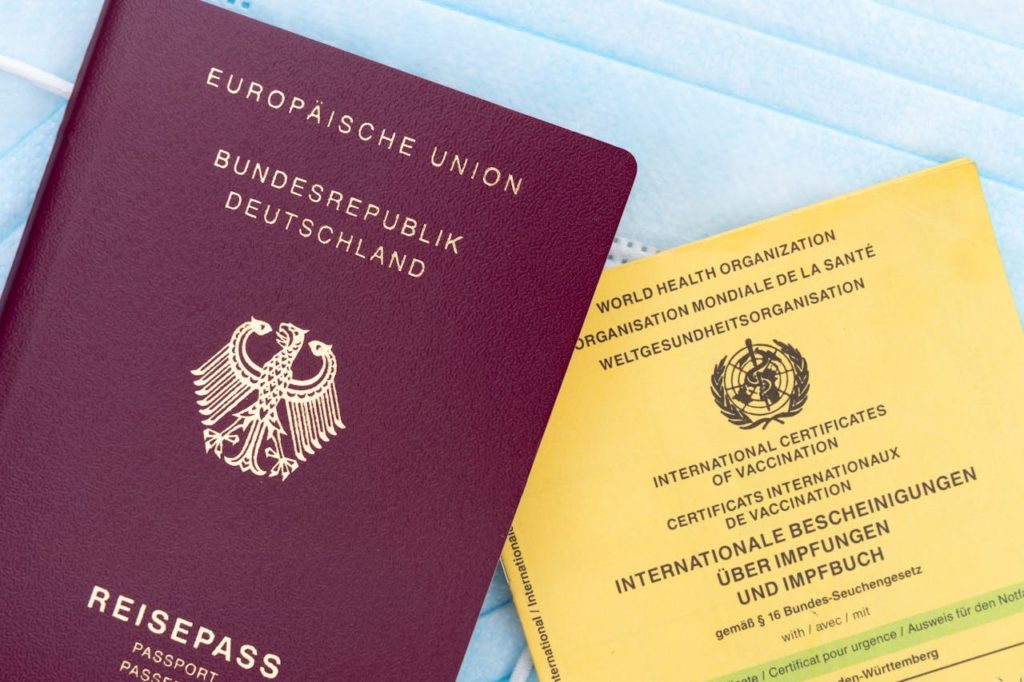Germany, with its thriving economy, rich cultural heritage, and robust social welfare system, has become a beacon for individuals seeking long-term settlement in Europe. For many, obtaining a Permanent Residence permit (PR) in Germany is the ultimate goal, offering stability, security, and a pathway to full integration into German society. Let’s delve into the intricate process of acquiring and understanding the German Permanent Residence Permit, exploring its types, requirements, application process, benefits, and more.
Types of Residence Permits in Germany
Before delving into the specifics of a Permanent Residence permit, it’s crucial to understand the landscape of residence permits in Germany. Germany offers various types of residence permits, including but not limited to
- student visas
- work permits
- family reunification visas
- humanitarian permits
These permits cater to different needs and circumstances, allowing individuals to reside in Germany for specific purposes and durations.

What is a Permanent Residence Permit?
A Permanent Residence permit (PR) in Germany, also known as “Niederlassungserlaubnis,” grants individuals the right to live and work in Germany indefinitely. It signifies a long-term commitment to the country and offers a pathway to eventual citizenship. Unlike temporary residence permits, which are subject to renewal and specific conditions, a Permanent Residence permit provides stability and security, allowing individuals to fully integrate into German society.
How can I stay in Germany permanently?
To stay in Germany permanently, individuals typically obtain a Permanent Residence permit (PR). This permit is granted based on various criteria, including continuous residency, sufficient financial means, integration into German society, and adherence to legal requirements. Once granted, a Permanent Residence permit allows individuals to reside in Germany without the need for visa renewals or extensions.
How do I become a resident of Germany?
Becoming a resident of Germany involves obtaining a residence permit that suits your circumstances, whether it’s for work, study, family reunification, or other purposes. Once in Germany, individuals can apply for a Permanent Residence permit after meeting specific eligibility criteria and fulfilling residency requirements. This process typically involves demonstrating integration into German society, proficiency in the German language, financial stability, and adherence to German laws.
Can you travel with a German Residence Permit?
Yes, individuals holding a German Residence Permit can travel within the Schengen Area for up to 90 days within a 180-day period. However, for travel outside the Schengen Area, additional documentation such as a visa may be required depending on the destination country’s regulations.
What happens if you overstay your visa in Germany?
Overstaying a visa in Germany is a serious offense and can lead to severe consequences, including fines, deportation, and bans on re-entry. It’s essential to adhere to the terms of your visa and seek legal advice if you encounter difficulties or need to extend your stay.
Maximum Overseas stay with German PR
The maximum duration of overseas stay permitted with a German Permanent Residence permit is six months but can vary depending on individual circumstances.
Souce: BAMF (Federal Office for Migration and Refugees)
Requirements for a Permanent Residence Permit
To qualify for a Permanent Residence permit in Germany, applicants must typically meet the following requirements:
- Five years of continuous residence in Germany (or less in certain cases, such as highly skilled workers or graduates of German universities).
- Proof of sufficient financial means to support oneself and any dependents.
- Adequate accommodation in Germany.
- Proficiency in the German language (for certain categories of applicants).
- Integration into German society, demonstrated through participation in community activities, adherence to German laws, and knowledge of German culture and values.
Documents needed to apply for Permanent Residence Permit
The documentation required for a Permanent Residence permit application may include:
- Valid passport
- Residence permit (if applicable)
- Proof of sufficient financial means
- Proof of accommodation
- Language proficiency certificates (if required)
- Integration certificates or other evidence of integration
Application Process
The application process for a Permanent Residence permit typically involves the following steps:
- Gather all necessary documents.
- Complete the application form.
- Submit the application to the relevant immigration office (Ausländerbehörde) or local Foreigners’ Registration Office (Ausländeramt).
- Attend any required interviews or appointments.
- Attend any required interviews or appointments.
- Await a decision on the application.
How long does it take to get a Residence Permit in Germany?
The processing time for a Residence Permit in Germany can vary depending on various factors such as the type of permit, the workload of the immigration authorities, and individual circumstances. Generally, it can take several weeks to a few months to receive a decision on a Residence Permit application.
Cost of German Residence Permit
The cost of a German Residence Permit can also vary depending on the type of permit and individual circumstances. Fees typically range from €50 to €110 for adults, with reduced fees for minors and certain categories of applicants.
Dual Citizenship
Germany allows for dual citizenship in certain circumstances, such as for individuals born with dual nationality, individuals who obtain another citizenship through naturalization, or citizens of EU or EEA countries. However, dual citizenship may be subject to certain restrictions or conditions, so it’s essential to seek legal advice before pursuing dual citizenship.
EU Blue Card for Germany
The EU Blue Card is a special residence permit for highly skilled non-EU citizens, designed to facilitate their entry and residence in the EU for the purpose of employment. It offers various benefits, including accelerated access to Permanent Residence in Germany and other EU countries.
Naturalization
Naturalization is the process of becoming a citizen of Germany through legal means, typically after residing in the country for a certain period, meeting specific requirements, and passing a citizenship test. Naturalized citizens enjoy the same rights and privileges as those born in Germany.
Application Process for Naturalization
The application process for naturalization in Germany involves meeting eligibility criteria, submitting the required documentation, attending interviews and language tests, and taking an oath of allegiance to Germany. The process can take several months to complete, but once naturalized, individuals gain the right to live and work in Germany indefinitely.
Benefits of a Permanent Residence in Germany
Acquiring Permanent Residence in Germany offers numerous benefits, including:
- Work in Germany without restrictions
- Better credit rating
- Travel permit within the Schengen Area
- EU Permanent Residence Permit
- Guaranteed social security
- Eligibility to apply for financial aid to study at German universities
- Pathway to German citizenship
In conclusion, obtaining a Permanent Residence permit in Germany is a significant milestone for individuals seeking long-term settlement in the country. With its comprehensive benefits, including the right to live, work, and travel freely within the EU, German Permanent Residence offers a pathway to stability, security, and full integration into German society. By understanding the requirements, navigating the application process, and embracing the opportunities it provides, individuals can unlock the permanence they seek in Germany.



